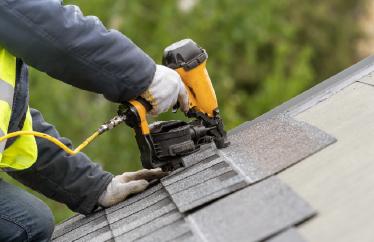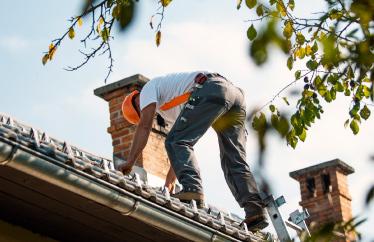Documents to keep safe
When disaster strikes, there’s nothing more important than keeping your friends and family members safe. While many of your personal belongings can be replaced following a wildfire or storm, there are certain records that you value. It’s a good idea to plan ahead and secure those documents.
If you know that a natural disaster is headed your way, there are several steps you can take to prevent the papers you need from being damaged or destroyed. Gathering important documents in advance is critical.CLICK TO TWEET
If you know that a natural disaster is headed your way, there are several steps you can take to fire- or disaster-proof your home to help prevent the papers you need from being damaged or destroyed. Gathering important documents in advance is critical. If you’re unprepared, trying to find what you need could be time-consuming and exhausting.
Records to protect
Records you need to protect are the ones that you would need to recover quickly, including medical and property records, legal and financial documents and personal files.
Medical records
In an emergency situation, having access to your medical documents is vital. When faced with a natural disaster, you’ll need to have the following records on hand or in digital form in case someone in your family requires medical…CLICK TO TWEET
In an emergency situation, having access to your medical documents is vital. When faced with a natural disaster, you’ll need to have the following records on hand or in digital form in case someone in your family requires medical attention:
- Birth certificates (particularly for toddlers and infants)
- Insurance cards
- Immunization records
- Prescriptions
- Disability documents
- Documents needed for immediate treatment and care
Make sure you have a hard copy (a physical list) of primary phone numbers for not only your family members and close friends but also your physician, nearby medical facilities, emergency respondents and your insurance carrier. If your phone dies and there’s no electricity, it will be important to have this information at your disposal.
Property records
In addition to your medical records, you’ll need to protect property-related documents if you’re preparing for a bad storm. If necessary, you’ll want to be able to quickly locate your deed, a copy of your lease or rental agreement, registration for any vehicle you own and any other documents showing property ownership or occupancy.
Following a catastrophe, an easy way to provide your insurance company with details about the belongings you’ve lost is to provide a home inventory video. In addition, consider maintaining a record of authenticity for valuable…CLICK TO TWEET
Following a catastrophe, an easy way to provide your insurance company with details about the belongings you’ve lost is to provide a home inventory video. In addition, consider maintaining a record of authenticity for valuable works of art or other expensive items in your home. Having these records is important when you’re filing an insurance claim and they can reduce how long it will take to restore what was lost.
Legal and financial records
Replacing legal and financial documents can take a long time. That’s why it’s important to include loan documents, bank and credit card statements, tax records, wills and retirement and investment account statements in your emergency financial first aid kit.
Personal files
When you’re trying to recover lost possessions and file an insurance claim, you’ll need to have access to paperwork that identifies you. Personal files you’ll need include:
- Passports and driver’s licenses
- Social Security cards
- Birth and marriage certificates
- Personal certificates
- Diplomas
- Military ID and registration cards
- Citizenship paperwork and green cards
How to protect your records
There are several ways to protect your most important records. Before you’re faced with a fire, hurricane, or other emergency, consider taking the following steps.
Take inventory of your records
It’s best to have your documents stored in one place. That way, if you ever need to evacuate your home, they’re easily accessible. One way to get organized is to make a master information kit. Place all of your papers in a binder and divide them into individual sections using color-coded tabs and plastic sleeves. This will also protect your personal records from dirt, dust and water damage.
Get a safe
Getting a safe that protects your records from fires and floods could be worthwhile. A portable lockbox or locking cabinet could also work. While a lockbox won’t provide the same level of protection as a watertight and fireproof safe, having something that you can grab when you’re in a hurry is helpful. Another option is to store your documents in a safe deposit box outside of your home.
Use the cloud
If you create digital copies of your personal documents, you can store them in the cloud. The cloud is a network of servers that allow you to store your files and view them whenever and wherever you have an internet connection. Through the cloud, you can maintain access to important documents even if you can’t physically retrieve them from your home.
Look for cloud storage services that encrypt your data. Keeping all of your personal information secure (particularly your financial records) is paramount.
Make copies of important documents
Having copies of your personal files is always a good idea. In case you need to access them when you’re away, you may want to store certain documents outside of your home. Whatever you decide to do, try not to store your duplicates with the original versions of your records.
Grab and go!
When you’re trying to escape a hurricane or some other natural disaster, you shouldn’t have to waste time gathering your valuable documents. Instead, it’s best to get organized and sort them out ahead of time. If you keep them in a place that’s easily accessible, you’ll be able to grab them at a moment’s notice.
Still have questions about keeping your records safe during a disaster? Contact a Hippo specialist. We’re here to help!




